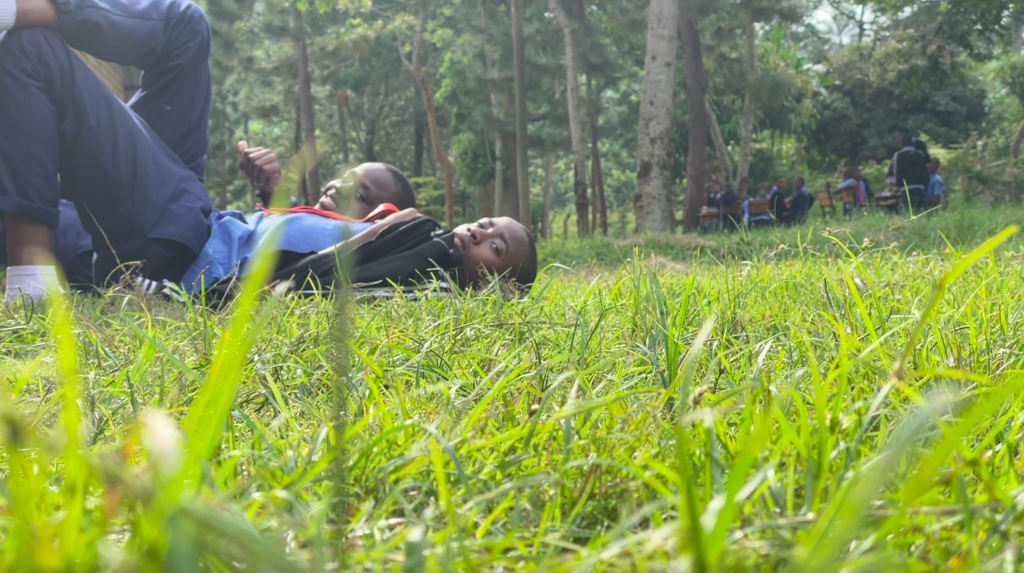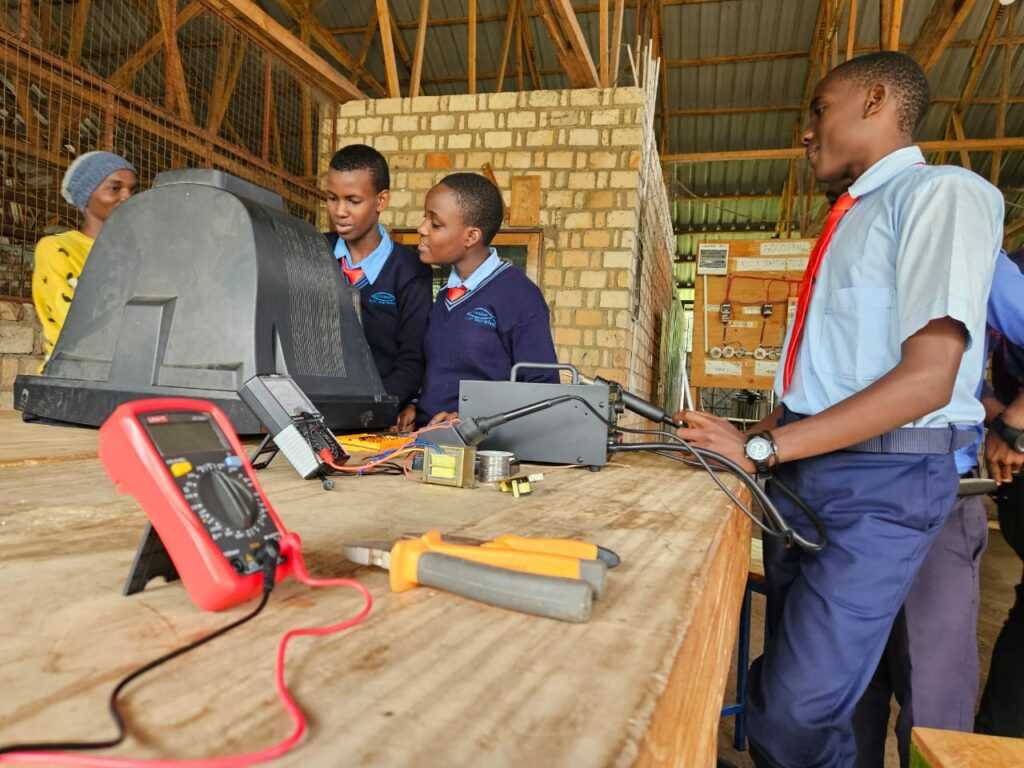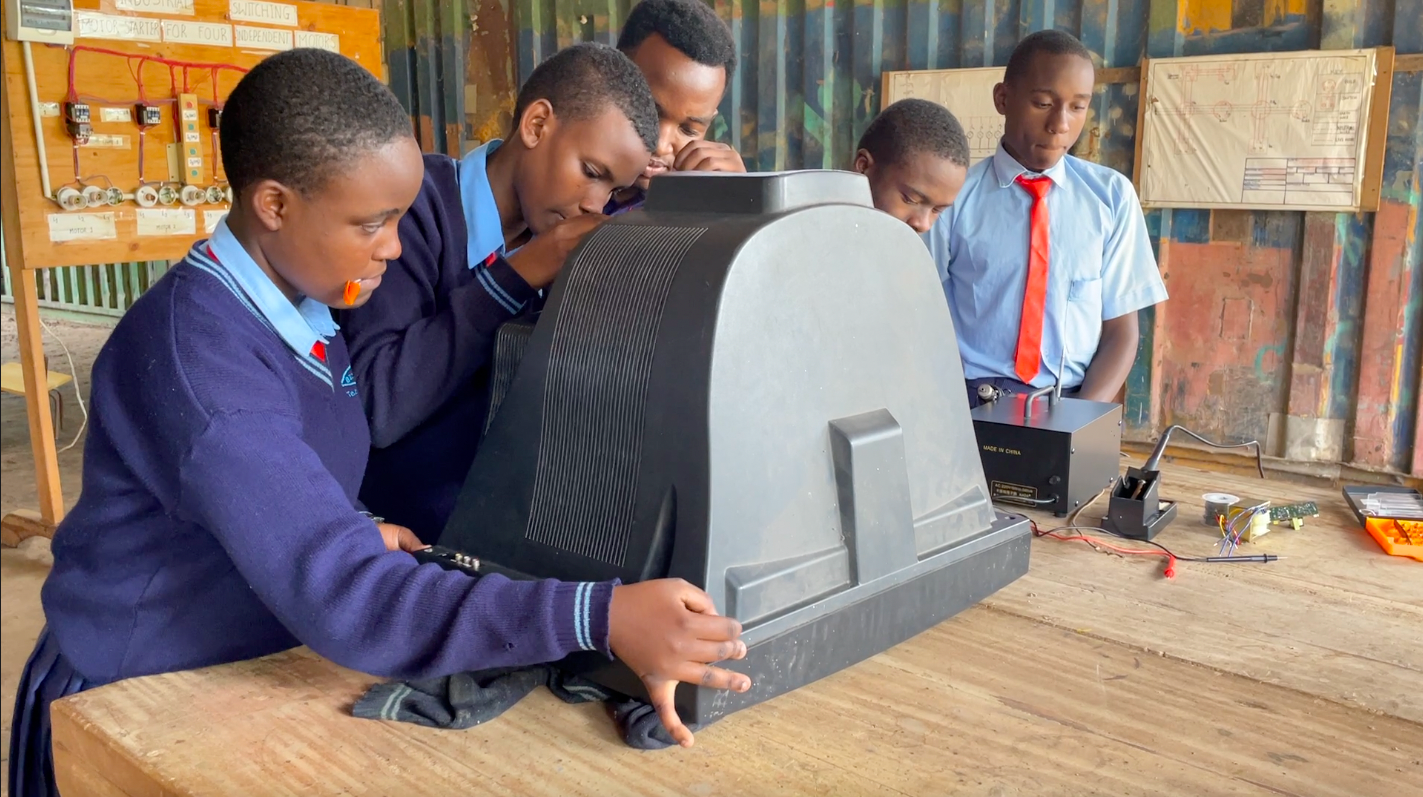
Shaping Tomorrow’s Engineers at Bethania Schools
Introduction: Bethania Secondary School’s Electric Workshop
The field of engineering is a cornerstone of innovation, shaping the infrastructure, technology, and tools that impact nearly every aspect of our lives. Recognizing this, Bethania Secondary School’s Electric Workshop has created an environment where students are empowered to step into this transformative field. Situated at the heart of Bethania Secondary School, this workshop isn’t just a place for technical instruction; it’s a thriving hub of innovation and forward-thinking education. The workshop serves as a platform for young students, enabling them to develop practical skills, apply theoretical knowledge, and envision themselves as future leaders in technology and engineering.
At Bethania, students are not only provided with access to advanced tools and resources but are also encouraged to dive deep into hands-on learning. By prioritizing real-world application alongside classroom theory, Bethania Secondary School’s Electric Workshop is building a solid foundation for students to understand the intricacies of fields like electronic engineering and industrial automation. This strategic blend of teaching approaches and resources stands as a testament to what young minds can achieve when given both the knowledge and space to explore.

Unleashing Potential: Ambition Meets Opportunity
The Electric Workshop exemplifies the significant achievements that can be unlocked when young minds are allowed to explore their capabilities. While ambition is a trait encouraged across Bethania Secondary, in the Electric Workshop, this ambition is channeled through structured opportunities, fostering creativity, perseverance, and strategic thinking. Here, students learn that their passion for electronics and engineering can transcend mere curiosity and become the foundation for a lifelong pursuit of knowledge and skill-building.
One of the cornerstones of the program lies in its comprehensive curriculum, meticulously designed to cover critical components within the electronics field. Students dive into essential topics like transformers, transistors, circuitry, and automated systems, delving into the fundamental theories that power modern technology. Yet, the curriculum does not stop at theory alone. Instead, students are immersed in rigorous, practical projects that bring these concepts to life in tangible, real-world applications. For instance, students might create their own electrical circuits, design mini-transformers, or construct transistor models to see firsthand how these components interact and operate.
Mentorship and Learning Environment
Central to the success of Bethania Secondary School’s Electric Workshop is the strong foundation of mentorship and support it provides. Each student has access to instructors with professional experience in engineering and related fields, ensuring they receive insights that bridge the gap between academic learning and industry expectations. Mentors play an active role in guiding students through complex projects, helping them navigate challenges, and encouraging them to push their boundaries. These mentors inspire students by sharing their experiences and motivating them to think creatively, problem-solve, and persevere even when faced with technical setbacks.
Moreover, the workshop environment is designed to encourage experimentation and exploration. Every student has access to a variety of electronic tools, devices, and materials, providing them the opportunity to transform ideas into physical prototypes. Through experimentation, students not only refine their technical abilities but also learn the importance of precision, adaptability, and safety in engineering practices. This hands-on exposure to real equipment and tools is a valuable aspect of the curriculum, as it allows students to gain experience working with industry-standard devices from an early age.
Bridging Theory and Practice: The Power of Hands-On Learning
At the heart of Bethania Secondary School’s Electric Workshop is a commitment to experiential learning. Theory is undeniably important; it serves as the foundation of engineering knowledge. However, it’s through practical application that students can truly grasp the intricacies of these concepts. Through this hands-on approach, students engage directly with theoretical constructs in real-world settings, allowing them to develop a practical understanding that will serve them well in future engineering careers.
In-Depth Projects: Transforming Knowledge into Real-World Skills
One of the most valuable aspects of the Electric Workshop is the focus on in-depth, hands-on projects that demand the application of both theoretical and practical skills. For example, students might be tasked with designing a simple electronic device from scratch. To accomplish this, they must draw upon a deep understanding of circuits, voltage, and resistance while also applying problem-solving skills and critical thinking to overcome obstacles. These projects challenge students to think like engineers and innovators, encouraging them to test, adapt, and perfect their designs through trial and error.
Students also gain exposure to essential tools and software widely used in the engineering field. From learning to use a multimeter to testing voltages in their circuits to employing software for circuit design and simulation, students acquire both hands-on technical skills and familiarity with digital tools. These practical skills are indispensable for anyone entering the field of engineering, as they form the backbone of an engineer’s toolkit. The combination of these tools and techniques makes Bethania Secondary School’s Electric Workshop a comprehensive environment where students can acquire a robust foundation in electronic engineering and automation.

Preparing Students for Industry: Building Practical Knowledge and Resilience
Bethania Secondary School’s Electric Workshop goes beyond basic skill development, aiming to prepare students for the actual demands of the engineering industry. The workshop not only provides technical training but also imparts critical thinking, communication, and teamwork skills that are essential in professional environments. Students learn to approach problems systematically, identifying underlying issues, testing solutions, and iterating upon their designs to achieve optimal outcomes.
Additionally, the curriculum encourages students to engage in teamwork, mirroring the collaborative environment of the engineering industry. By working on group projects, students learn how to communicate their ideas, coordinate tasks, and solve problems collectively. They also develop interpersonal skills, learning to listen to others, respect diverse perspectives, and integrate different ideas into cohesive project outcomes. These experiences are invaluable, as they prepare students to thrive in professional settings where collaboration and effective communication are crucial.
Adapting to Industry Trends
In keeping with the dynamic nature of technology, Bethania Secondary School’s Electric Workshop is continually updated to reflect the latest trends in engineering and automation. For instance, as automation technologies become increasingly prevalent across industries, students are introduced to the principles of automated systems and robotics. They learn how sensors, actuators, and control systems function together to create automated processes, gaining insights into the technology that powers modern manufacturing and industrial operations.
The Electric Workshop also provides exposure to sustainable engineering practices, emphasizing the importance of creating technology that is not only efficient but also environmentally responsible. Students learn about energy efficiency, the use of renewable materials, and other practices that contribute to sustainable engineering solutions. By instilling these principles early on, Bethania’s Electric Workshop fosters a generation of engineers who are not only technically skilled but also conscious of their impact on the world.
The Role of Resources and Continuous Improvement
While the Electric Workshop has achieved notable successes, the leadership at Bethania Secondary School recognizes the importance of continuous improvement. The field of engineering is ever-evolving, and keeping up with technological advancements requires a commitment to enhancing resources and tools. As new technologies and techniques emerge, Bethania’s Electric Workshop seeks to provide students with the most current and relevant resources available. This includes advanced simulation software, updated equipment, and even partnerships with local engineering firms that can provide additional learning opportunities and industry insights.
Fostering Innovative Leaders with an Entrepreneurial Mindset
One of the standout qualities of Bethania Secondary School’s Electric Workshop is its ability to nurture not just engineers, but also innovators and entrepreneurs. Students are encouraged to think beyond technical solutions and consider how their ideas could be transformed into marketable products or services. This entrepreneurial approach encourages students to view challenges as opportunities, fostering a mindset that values creativity, perseverance, and a willingness to take calculated risks.
Through specialized workshops, guest lectures, and mentorship from professionals in the field, students gain exposure to the business side of engineering. They learn about product development cycles, from ideation to prototyping to market launch, gaining insights into what it takes to turn a technical innovation into a successful business venture. By fostering this entrepreneurial mindset, Bethania is not only preparing students for careers in engineering but is also equipping them to become future leaders and innovators who can shape the industry.
A Vision of Empowerment Through Education
Ultimately, the Electric Workshop at Bethania Secondary School reflects the institution’s unwavering commitment to empowering the next generation of engineers and leaders. This initiative embodies a belief in the transformative power of education, demonstrating that when young people are given the tools and support to pursue their ambitions, they are capable of achieving remarkable things. By nurturing both technical skills and critical thinking, Bethania’s Electric Workshop prepares students to take on the challenges of the future with confidence and resilience.
Bethania’s approach to engineering education is rooted in a vision of empowerment through education, inspiring students to take ownership of their learning and see themselves as capable innovators. As the workshop continues to evolve and expand, it remains dedicated to providing students with the resources, guidance, and opportunities they need to excel in their studies and beyond.
The journey of students at Bethania Secondary School’s Electric Workshop is a powerful example of what is possible when education is aligned with innovation, ambition, and a vision for the future. The hands-on learning, mentorship, and exposure to real-world applications provided by the workshop give students a robust foundation in electronic engineering and industrial automation. Through this comprehensive program, students not only gain technical knowledge but are also inspired to dream big, think creatively, and pursue their goals with confidence.